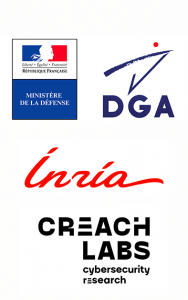SEPTEMBER 2024
|
|
“From Deciding Knowledge to Intrusion Detection” by Yannick Chevalier (Université de Toulouse) Date : 13 september 2024 By interpreting terms as distributions over strings, Abadi and Rogaway proved under suitable assumptions that indistinguishability in the computational setting, accepted as the impossibility for an observer to acquire knowledge from observing a protocol execution, is equivalent to formal equivalence in a symbolic setting. This result led to multiple results on “deciding knowledge” using static equivalence. I will present how this equivalence between a real and a formal setting can be leveraged to synthesize an anomaly detection system that constructs a monitor learned by observing the real traffic in a network. |



